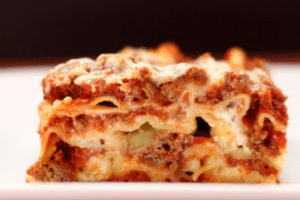They are often used in the food industry due to their stabilizing, gelling, and thickening properties.
It has no nutritional value, and our body cannot digest it, even though it is derived from a natural source. It destroys the immune system, as it stimulates a negative immune response that leads to inflammation.
Scientists have found a link between carrageenan and the increased colon cancer rate, along with gastrointestinal inflammation that leads to chronic diarrhea, IBS, spastic colon, and inflammatory bowel disease.
You decide for your own health, but you need to stay well-informed about the food you consume. There have been numerous debates about the effects of the consumption of soy milk, but there is a significant amount of evidence that proves its dangerous side-effects on health.
We give you 10 good reasons to avoid soy milk:
— Soy foods are rich in aluminum, which is toxic to the body and has seriously negative effects the kidneys and the nervous system, and it’s been linked to Alzheimer’s disease.
— Soy is rich in plant estrogens known as phytoestrogens, which disrupt endocrine function and causes infertility and breast cancer in women.
-Soybeans are loaded with toxins that affect estrogen levels, so the consumption of 2 glasses daily greatly alter the hormones in a woman’s body, disrupting the menstrual cycle.
— Soy contains toxic isoflavones – genistein and daidzein, which trigger the growth of existing breast cancer.
— Soybeans and soy products are rich in phytic acid, which inhibits the assimilation of zinc, copper, calcium, magnesium, and iron.
-Soy foods are rich in goitrogens which inhibit the production of thyroid hormones.
— Soybeans are rich in haemagglutinin, which is a clot-promoting substance that makes red blood cells to clump together.
-Nitrates, which are potent carcinogens, are formed during the spray-drying process.
-Approximately 99% of soy is genetically modified, so it is extremely high in pesticides.
— During the process of production of soy protein isolate and textured vegetable protein, the fragile soy proteins are exposed to high temperatures, which makes them harmful for human digestion.
Source: www.davidwolfe.com









